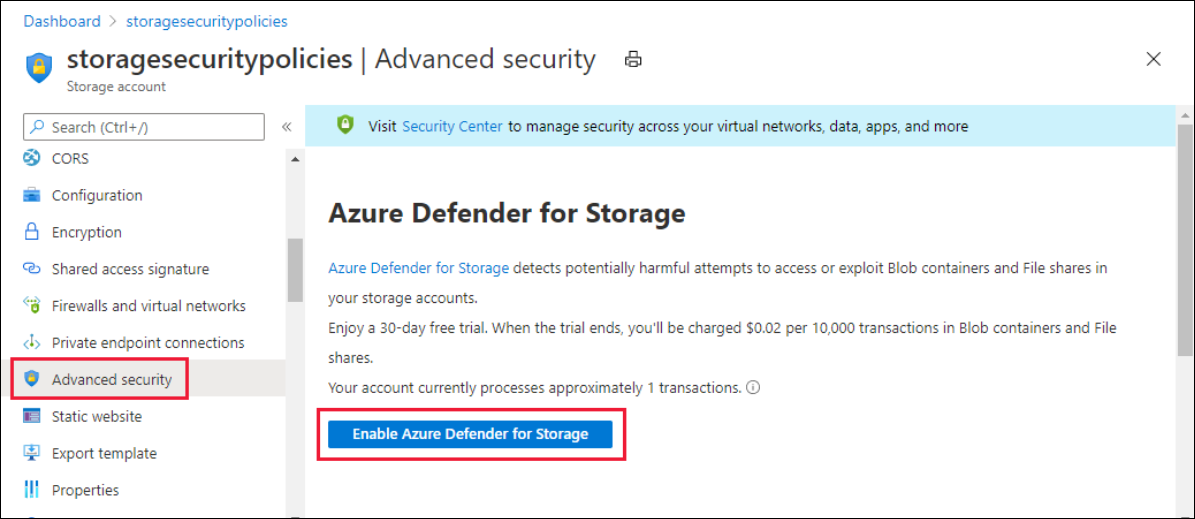Our application stores files uploaded from our customers to blob storage. These files are exchanged between different parties (our customers and their suppliers). Is there a way to check the uploaded files for viruses? The Antimalware service seems to just check virtual machines, but I cannot get any information about using it to check files as a service.
A great solution would be if we could store such a file in Azure Storage as an "on hold" file till it is checked. Then we would need a service to check this file and returns the result. If the file is virus-free we could then move it to the final destination.

